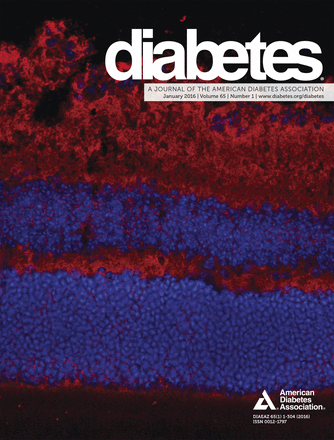September 2003 - UCSF researchers have identified a biochemical feedback system in rats that could explain why some people crave comfort foods - such as chocolate chip cookies and greasy cheeseburgers - when they are chronically stressed, and why such people are apt to gain weight in the abdomen.
The finding, to be published this week on-line in the Early Edition of Proceedings of the National Academy of Sciences, focuses on a glucocorticoid steroid hormone (corticosterone in rats, cortisol in humans) that plays a key role in the stress-response system. In their study, the researchers determined that 24 hours after activation of the chronic stress system - which stimulates a flood of hormonal signaling from the hypothalamus to the adrenal glands � glucocorticoids prompt rats to engage in pleasure-seeking behaviors, which include eating high-energy foods (sucrose and lard). The animals develop abdominal obesity, and the negative aspects of the chronic stress response system, otherwise ushered in by the glucocorticoids, are blunted. The researchers suspect that the metabolic signal to inhibit the stress system comes directly from fat depots.
The finding offers an explanation into how chronic stress can be inhibited, or curbed. While the body's acute response to stress - say to being cut off in traffic by a speeding car - diminishes through a naturally occurring inhibitory feedback mechanism of the adrenal stress system, its chronic response to stress - in which a barrage of threats, scares or frustrations occur over days, weeks or months -- becomes chronically excited. Over time, the elevated stress level can initiate a host of deleterious effects on the body - a loss or gain of weight, depression, obesity (associated with type II diabetes, cardiovascular disease and stroke), and a loss of brain tissue.
"Our studies suggest that comfort food applies the brakes on a key element of chronic stress," says study co-author Norman Pecoraro, PhD, a postdoctoral fellow in the laboratory of senior author Mary Dallman, PhD, UCSF professor of physiology. And it could explain, he says, why solace is often sought in such foods by people with stress, anxiety or depression. It also could help to explain bulimic and night-binging eating disorders. Dallman, who has spent years studying the regulation of the stress response system, developed the new model of chronic glucocorticoid feedback.
Evolutionarily, the drive to eat comfort foods makes sense, says Pecoraro. In the animal kingdom, it's an eat or be eaten world, and a body under constant, or chronic, stress may preferentially eat high-energy foods to stay in the game. Under the model that the research team has proposed, glucocorticoids would both prompt vigilance to threats and send a signal to the brain of a chronically stressed animal to seek high-energy food. If it were successful in finding such food, stress and its attendant feelings would be terminated.
Continue Reading Below ↓↓↓
In regions of the world where people struggle with wars, epidemics of disease and chronic food shortage, the need to seek out high-energy foods would be great, as well. In the developed world, where stress is more often found in a commuting office worker, people seem to be seeking the same solution � and finding it at every street corner, says Pecoraro.
"If, after the near-miss on the freeway, you get into work and almost lose your job during an argument with your boss, and have a fight at home that night - and these types of events are relentless -- you're going to have chronically elevated adrenal hormones [ie., chronic stress]," he says. There has to be a brake on the system, and, for some, it's chocolate.
Importantly, there are other ways to treat chronic stress � exercise, yoga, meditation, sex and baths all stimulate neurochemicals that activate regions of the brain that stimulate pleasure. Relaxation techniques may work by reducing the psychological drives on stress output, which can be the root causes of stress. (Drugs and alcohol do not provide sufficient metabolic feedback, and may even stimulate further stress, and its attendant compulsions for pleasure.)
As for the use of food, there are serious health consequences of a diet high in fat and sugars -- abdominal obesity (which can lead to cardiovascular disease, Type II diabetes and stroke), and cardiovascular disease itself.
"In the short term, if you're chronically stressed it might be worth eating and sleeping a little more to calm down, perhaps at the expense of gaining a few pounds," says Pecoraro. "But seeking a long-term solution in comfort foods - rather than fixing the source of the stress or your relationship to the source of the stress -- is going to be bad for you."
Stress, of course, is a strategy that evolved to enable the body to deal with threats - those ranging from the crouched lion ready to pounce, to the possibility of losing a job. It promotes quick, though somewhat inflexible, physical and mental responses, vigilance and attention. In the immediate response to a perceived danger, the body experiences the familiar "adrenaline rush," in which the adrenal glands initiate a flood of hormonal signals that quicken the heart rate, constrict the vasculature to prevent bleeding to death, and provide energy to the muscles. Minutes later, a slightly slower response is orchestrated by hormones from another region of the adrenal glands, providing such defenses as an anti-inflammatory function. Once an acute threat has subsided, these hormones are shut off through an inhibitory feedback system.
During chronic stress, however, the system does not turn off, and glucocorticoids, which were formerly inhibitory, have an over-riding excitatory effect on brain stress networks. Glucocorticoids in the system remain elevated, maintaining high levels of corticotropin releasing factor, which in turn regulates adrenocorticotropin � both key inciting hormones in the chronic stress response system. This creates a positive feedback loop between the stress systems of the body and brain.
From their studies, the researchers concluded that rats with chronically elevated glucocorticoids developed pleasure-seeking/or compulsive behaviors, which included drinking sucrose (rather than saccharine), eating lard, running on the wheel and taking a drug. They then observed changes that took place in the stress response system in the aftermath of eating the comfort food - an increase in abdominal fat and an end to corticotropin releasing factor and adrenocorticotropin secretion. They also observed an inverse relationship between abdominal fat and the expression of genes in the motor zone of the hypothalamus, where the stress response is initiated.
"This seems to be the body's way of telling the brain, 'It's ok, you can relax, you're refueled with high-energy food,'" says Pecoraro. The message is clearly being transmitted in the middle-aged man or woman with a gut. "This body type represents the classic distribution of fat from stress." The new model may explain why losing weight is notoriously difficult, he says. Losing weight is literally stressful, which makes a person feel anxious, and stress hormones make a person crave high energy foods, which blunt the feelings of stress and make one feel better.
Co-authors of the study were Susan F. Akana, Susanne E. la Fleur, Francisca Gomez, Hani Houshyar, M.E. Bell, Seema Bhatnagar, Kevin D. Laugero and Sotara Manalo, of the Department of Physiology and Neuroscience Program at University of California, San Francisco.
Continue Reading Below ↓↓↓
Source: University of California – SF











